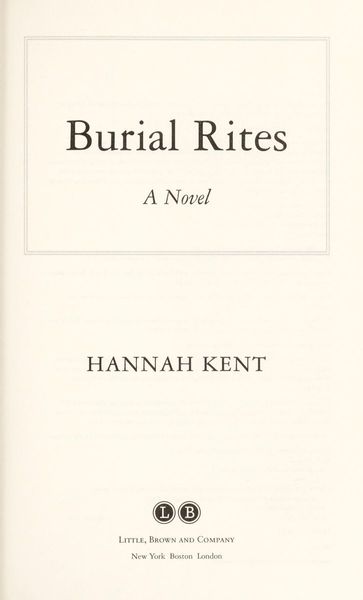
Burial rites a novel
Set against Iceland's stark landscape, this story evokes a dramatic existence in a distant tme and place. Here the author brings to vivid life the story of Agnes, who, charged with the brutal murder of her former master, is sent to an isolated farm to await execution. Horrified at the prospect of housing a convicted murderer, the family at first avoids Agnes. Only To ti, a priest Agnes has mysteriously chosen to be her spiritual guardian, seeks to understand her. But as Agnes's death looms, the farmer's wife and their daughters learn there is another side to the sensational story they've heard. But will their new knowledge be enough to save Agnes? -- Provided by publisher.
Reviews
maddy rowley@maddyrowley
Ada@adasel
Isabella @iscbella
Bi@mytileneve
Khoi K@uplatewithabook
Jacqueline Englund@jackiereads
Sade A@bitterblue
Emelie@swedishbookowl
Lauren Tabor@readingthroughwonderland10
Jen Casey@jenc
Nicole Blazek@nicoleb
Jen Estrella@nightingale03
Amanda Wells@amandawells
Magdalene Lim@magdalene
celeste@corcordium
Cat@caityreads
Amber Laha@amberml
Jacklyn O’Brien @judge_a_book_by_this_blog
Elad Schulman@theloungingreader
Renee Blankenship@somekindofalibrary
Erin @pagesofmilkandhoney
mario@mario69
Claire E@lamantine
Katie elliott@katiellliott
Highlights
bug@bugspray
Page 71
bug@bugspray
Page 35
bug@bugspray
Page 29
bug@bugspray
Page 29